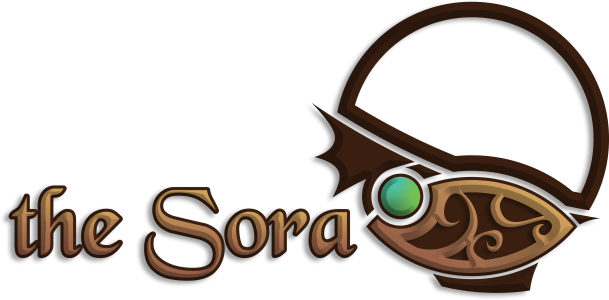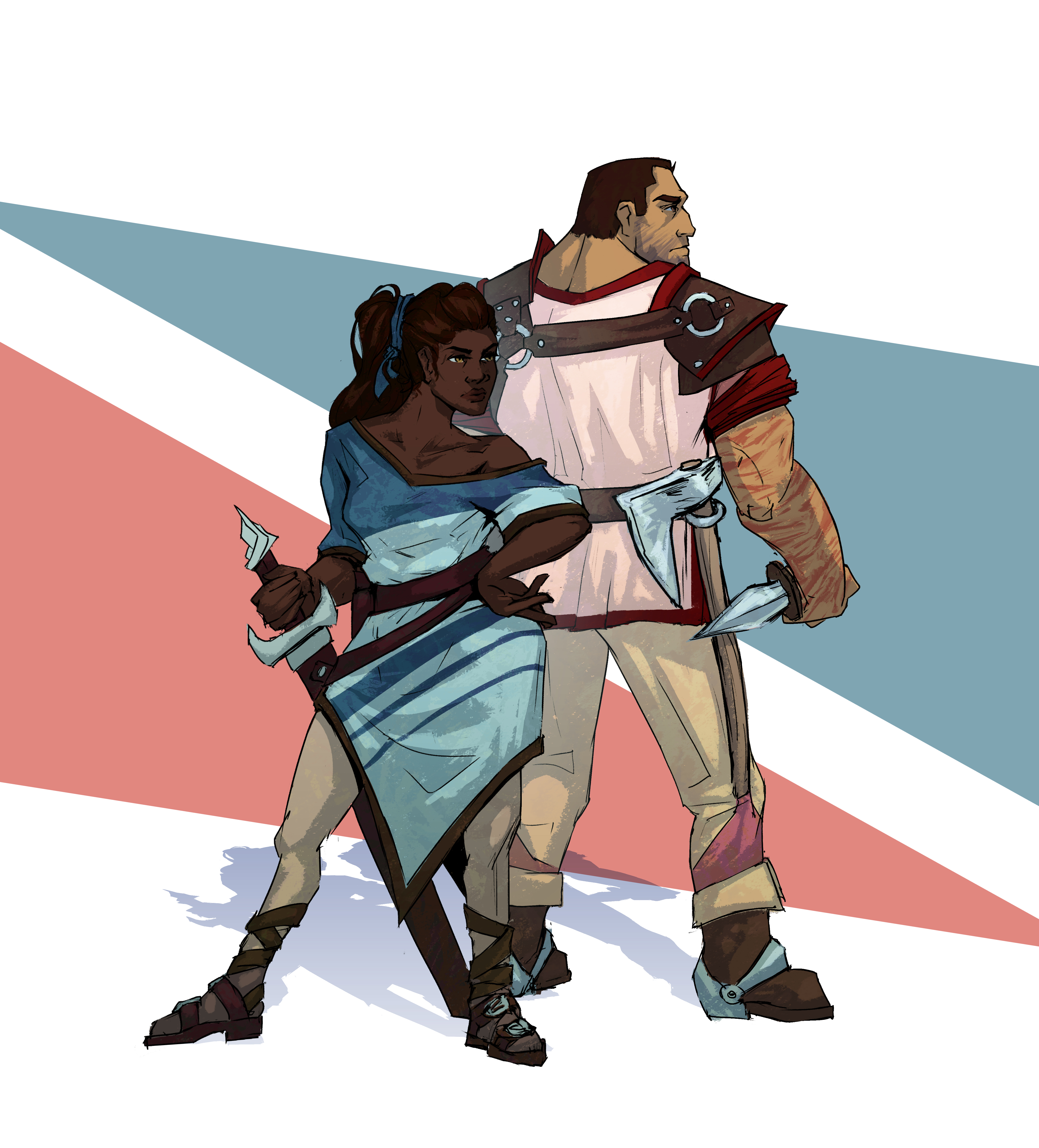human
Humans are one of the most widespread and common sapient species of the Sora, often being the standard to which all other species are compared. They are known for their adaptability and ability to settle and thrive in virtually any environment. Humans can be found in virtually all empires filling any sort of roles.
Physical Description
Humans are fairly physically diverse, with a wide range of body types, skin tones, and hair colors. Men are fairly tall and broad, compared to many other species, standing between 5'4" and 6'4" on average, while weighing between 150 to 250 pounds. Women are somewhat smaller and more lithe than men, ranging from 5' to 6' in height and 125 to 200 pounds in weight. Women tend to have smaller waists and longer legs than men, while men have wider shoulders and larger muscles. They tend not to reach the extremes of other species, not being as short as dwarves, large as goblins, or thin as elves. Humans can have a variety of coloration, with skin ranging from pale peach to dark brown, though most fall somewhere in the middle. Paler humans tend to have lighter colored hair, such as blonde and red, with darker humans having correspondingly darker hair, ranging all the way to jet black. Their hair can have very different textures, including pin straight, wavy, curly, frizzy, and even wiry. Women mostly have little or very fine body hair, usually with no ability to grow facial hair, while men are more hirsute and can have beards that can rival a dwarf's. Eye colors are similarly varied, with blues, greens, and browns being increasingly common.Senses
Humans have very average senses across the board. They are unable to see in darkness, see poorly in dim or extremely bright light, and have no special capacity with their vision. They have decent hearing and senses of taste, but have relatively poor senses of smell compared to many other species.Life Cycle
Women become fertile roughly once a month, though men are able to impregnate women at any time. Pregnancies last roughly nine months, though they mostly remain fully capable until toward the end of the final months of the pregnancy. Newborns are relatively helpless, being unable to do much but eat and sleep. At around 10 months old they are usually able to crawl and begin starting to speak at around a year old. By a year and a half most have begun to walk, with intelligible speech begining at around two years. From this point, human children develop fairly unsteadily, with longer periods of slow growth interspersed with spurts where they grow taller and heavier. Around 10 to 12 years old, they begin to go through puberty, usually ceasing by 17. They can continue to grow slightly taller and heavier up until their mid-20s, though it is only gradual. They remain in their physical prime until their 40s, when they begin slowly declining in physical condition, their hair starting to turn gray or (especially among men) falling out. Their mental acuity remains sharp usually until their 60s, though some can remain mentally stable far longer. Most humans live until their mid-70s, though a few rare ones can make it to just over a century.Diet
Humans are omnivorous, capable of consuming a wide variety of plants and animals. Human cultures have adopted a range of diets, from purely vegan to primarily carnivorous, depending on local availability and tradition. More primitive cultures engage in a hunter-gatherer lifestyle as their sole means of food collection. This involves combining stationary food sources (such as fruits, grains, tubers, and mushrooms, insect larvae and aquatic mollusks) with wild game, which must be hunted and killed. Most cultures, however, engage in extensive agriculture and animal husbandry, growing a wide variety of crops and domesticating numerous animals. Humans are known for developing food from a variety of sources, making cheeses, eating eggs, discovering the edible parts of poisonous animals, and even figuring out how to turn unpalatable items edible through controlled fermentation and rotting.Distribution
Humans are among the most widely distributed species in the Sora, being found in virtually all climates and habitats. As long as there is water and food to be found, humans can settle and even thrive there. The only realms that humans tend to refuse are those which are entirely dark or require extensive underground living to survive, as humans need light to see and do not do well in cramped quarters. Humans are well known for adapting themselves to the places they live, rather than trying to adapt the place they live to themselves.
Lifespan
75 years
Average Height
5'4" to 6'
Average Weight
150 to 200 pounds




Comments